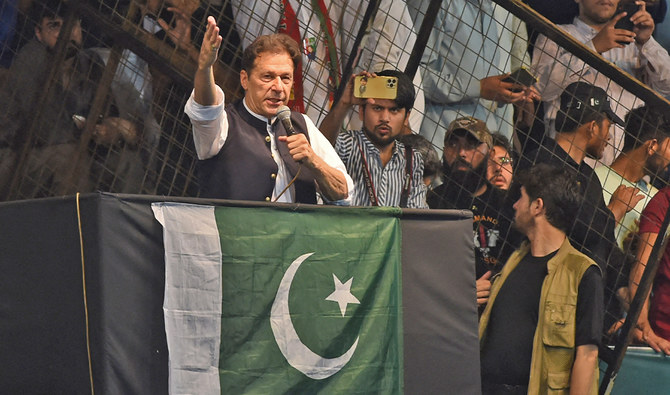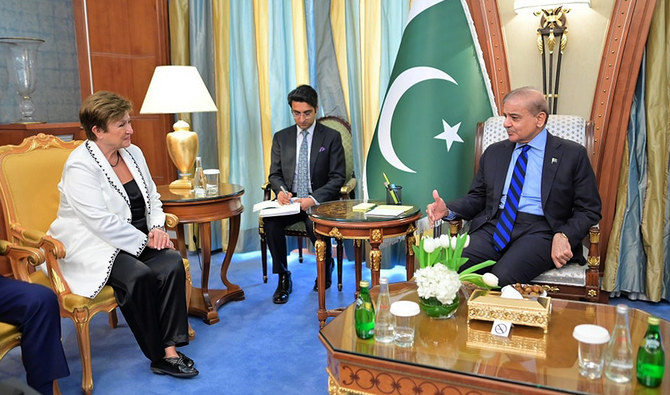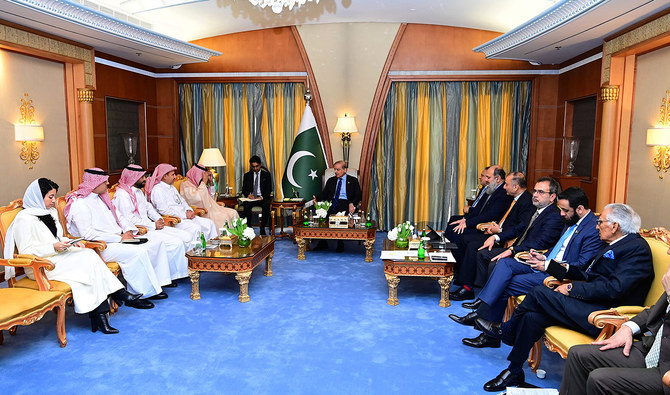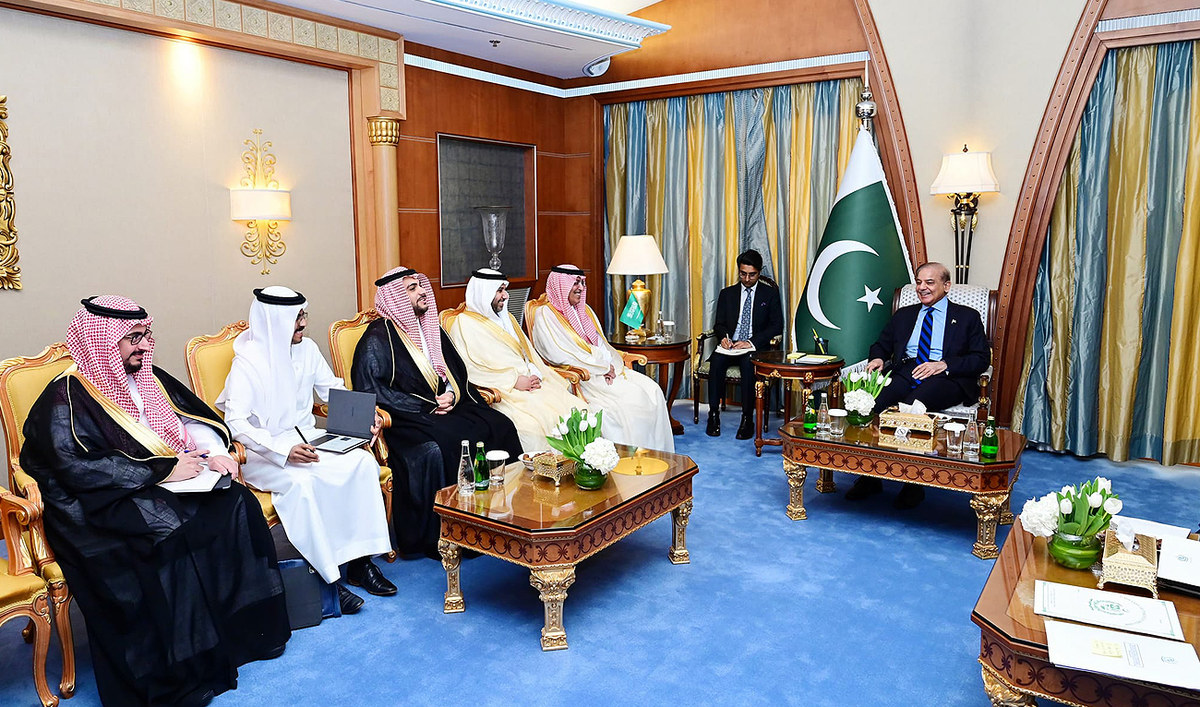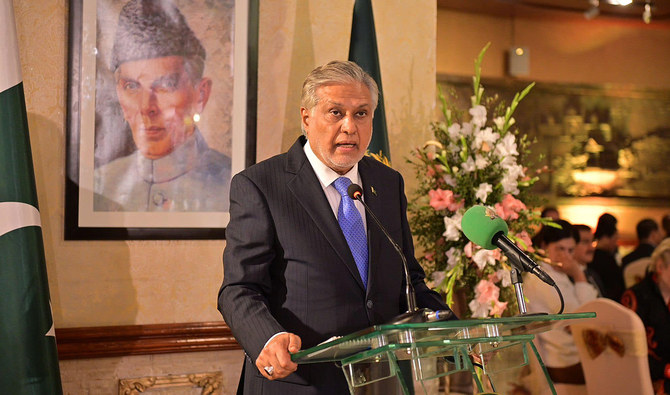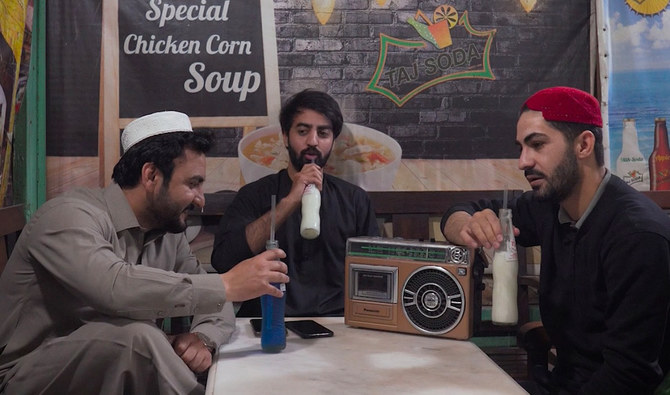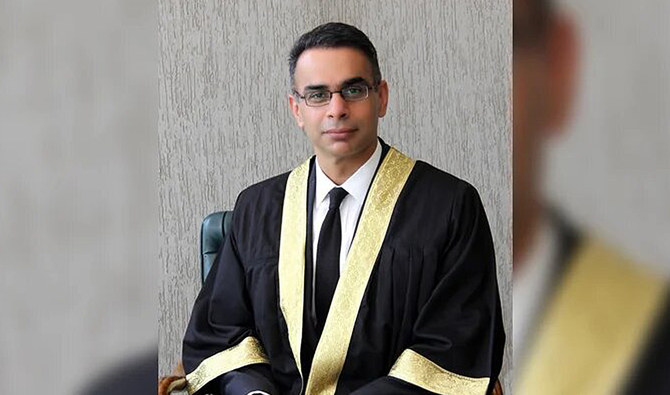ISLAMABAD: Pakistan’s former prime minister Imran Khan on Monday secured a transit bail after his legal team approached the Islamabad High Court (IHC) in the morning to submit a pre-arrest bail application in the wake of a case registered against him under the anti-terrorism laws of the country.
Khan’s Pakistan Tehreek-e-Insaf (PTI) party decided to go to the court after rumors of his likely arrest spread on social media last night, making his workers and supporters declare him as their “red line” while warning the government against any attempt to arrest him.
The former prime minister, who was ousted in a no-confidence vote in April after losing parliamentary majority, held a rally in the federal capital on Saturday in which he said that his chief of staff, Dr. Shahbaz Gill, had been tortured by the police after his arrest on charges of sedition.
Khan’s claim was denied by the government. Yet, he promised his supporters at the rally not to “spare” the Islamabad inspector general and deputy inspector general of police, adding his party would also “take action” against a female judge who remanded Gill in police custody.
A case was subsequently registered against Khan for “terrorizing” the judge and senior police officials on Sunday before his party suspected his arrest had become imminent and created a Twitter trend, “Imran Khan is our red line.”
“We came to the Islamabad High Court today for protective transit bail,” said a senior PTI leader, Shah Mahmood Qureshi, while talking to the media. “A double bench heard Imran Khan’s case and allowed him bail until Thursday.”
The PTI leader said his party would soon go to the anti-terrorism court to seek an end to the “political case” against Khan which had no legal value.
Prior to that, the former premier’s residence in Islamabad was also surrounded by his workers and supporters in the early hours of Monday to prevent his arrest after PTI leaders asked people to come out into the streets.
“Arrest orders of Imran Khan have been issued,” his close aide, Murad Saeed, proclaimed in a Twitter post. “It’s time to pay the price for showing the courage to seek self-respect. Step out [of your houses] for the sake of Pakistan.”
A senior PTI leader, Ali Amin Khan Gandapur, warned his party would “take over Islamabad” if Khan was arrested by the government.
Pakistan’s media regulator imposed a ban on the live broadcast of the former prime minister’s speeches after his rally on Saturday, saying he was spreading “hate speech” by making “baseless allegations” against state institutions and its officials.
However, this did not deter him from accusing the military establishment from cracking down against his party while addressing another political rally in Rawalpindi on Sunday evening.
The PTI aired his speech on the party’s YouTube channel, though some of its leaders said the video sharing platform became temporarily unavailable in certain parts of the country during the broadcast.
Khan’s legal team has decided to file a pre-arrest bail application in the Islamabad High Court after the events of last night.
Pakistan’s interior minister Rana Sanaullah said on Sunday the government was seeking legal advice on whether to include Khan’s name to the existing case of sedition against his chief of staff or separately move against him for “threatening” senior government functionaries at his Islamabad rally.
Gill, who has been under arrest since August 9, is facing the sedition case for his televised comments, in which he asked army officers not to follow orders of their top command if they were “against the sentiments of the masses.”



